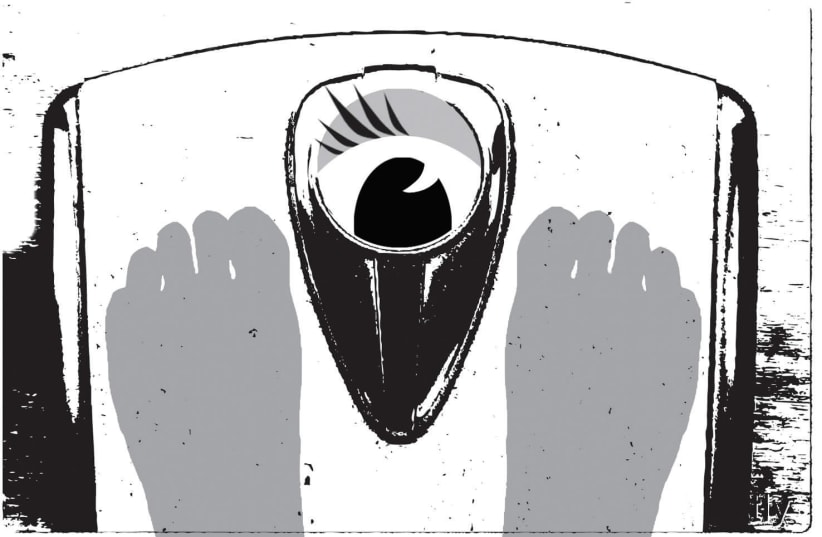I feel very alone; I have few relatives. My doctor has strongly recommended that I undergo this surgery. The operation would be paid for by my health fund, as it is necessary for me to lose weight and improve my medical condition. But I am nervous about it, and I don’t know where to go or what surgeon I can trust to do it. I have heard that some patients who undergo such surgery suffer complications and a few have died from it. Where do I go for advice? Are there patients who have the operation but don’t lose weight as promised?
A.N., Beersheba
Dr. Nassar Sarkan, director of the obesity clinic at Hillel Yaffe Medical Center in Hadera, head of the Israel Bariatric Surgery Society and chairman of the bariatric surgery department at Herzliya Medical Center; and Prof. Reuven Zimlichman, chairman of the Israel Medical Association’s Institute for Quality in Medicine, reply:
To regulate the growing field of bariatric surgery (operations for the treatment of morbid obesity), the Institute for Quality of Medicine of the Israel Medical Association (IMA) has for the first time coordinated and written a position paper with guidelines on the specialty.
Israel leads the world in the number of surgeries to treat morbid obesity in terms of population. In Israel, around 10,000 operations are now carried out every year to treat morbid obesity. (By comparison, there are only about 3,000 to 5,000 bariatric surgeries per year in Germany, which has nearly 10 times the population of Israel, and some 10,000 surgeries in Italy, which has more than seven times our population.)
Until now, there has been no written document that defines which surgery is appropriate for which disease, what is done when surgery is unsuccessful and patients do not lose weight, and other issues. The position paper refers to short- and longterm care after bariatric surgery, recommendations for tests and post-operative follow-up and conditions of complex background disease and recurrent surgery. The paper incorporates the latest recommendations based on the medical information currently available in the field.
Bariatric surgery is now considered the most effective solution for treating morbid obesity, both in weight loss and in diseases associated with obesity. Weight loss is achieved by removing a portion of the stomach (sleeve gastrectomy or biliopancreatic diversion with duodenal switch), reducing the size of the stomach with a gastric band or by resecting and re-routing the small intestine to a small stomach pouch (gastric bypass surgery).
Candidates applying for surgery at the expense of their health fund must be approved for the operation according to the medical indications set down by the Health Ministry, the medical indications for the operation and the approval of a committee that includes an internal medicine specialist or endocrinologist, a dietician and a psychologist or a social worker.
Go to a hospital with a good reputation and much experience in bariatric surgery. The better the medical follow-up on patients, the more likely patients are to lose weight and the less likely they are to suffer complications. Postoperative follow-up should include consultation and follow-up by a bariatric surgeon, an experienced clinical dietician in the field of bariatric surgery, individual or group psychological follow-up, postoperative consultation and monitoring by your family doctor or endocrinologist.
Possible complications after bariatric surgery include hemorrhage, leaking, infection, inadequate nutrition and osteoporosis. Undergoing surgery to lose weight is not enough; patients also need to change their eating habits and behavior, preferably with help from an interdisciplinary team at bariatric centers.
In many cases, the operation can be lifesaving, changing food consumption habits. Weight reduction through surgery is especially recommended for those who have failed to lose weight by other means. Bariatric surgery techniques have significantly improved in recent years as the number of operations has grown. But you must cooperate with your team and adapt your way of life to the limitations imposed by the surgery.
My 88-year-old husband had an ileostomy three years ago. The surgeon told us that my husband’s rectum had to be closed up and a stoma was created in the front. [An ileostomy is a surgical opening in the abdominal wall. The end of the ileum, the lowest part of the small intestine, is brought through this opening, called a stoma, usually on the lower right side of the abdomen. When the patient cannot eliminate feces through the rectum, the feces are diverted through the stoma into a tube and eliminated from the body.]
Until now we have coped with it but for a few days now something seems to be leaking from the back passage and soiling his underwear and the bed sheet. Apart from getting some sort of protective pads is there anything else one can do? He is reluctant to go to the surgeon as he has had enough of operations. What can be done? R.L., via email.
Prof. Eran Goldin, director of the digestive diseases institute at Jerusalem’s Shaare Zedek Medical Center, comments: This patient must see the stoma nurse of his health fund or one of the hospitals as soon as possible.
Rx for Readers welcomes queries from readers about medical problems. Experts will answer those we find most interesting. Write Rx for Readers, The Jerusalem Post, POB 81, Jerusalem 9100002, fax your question to Judy Siegel-Itzkovich at (02) 538-9527, or email it to jsiegel@jpost.com, giving your initials, age and place of residence.
